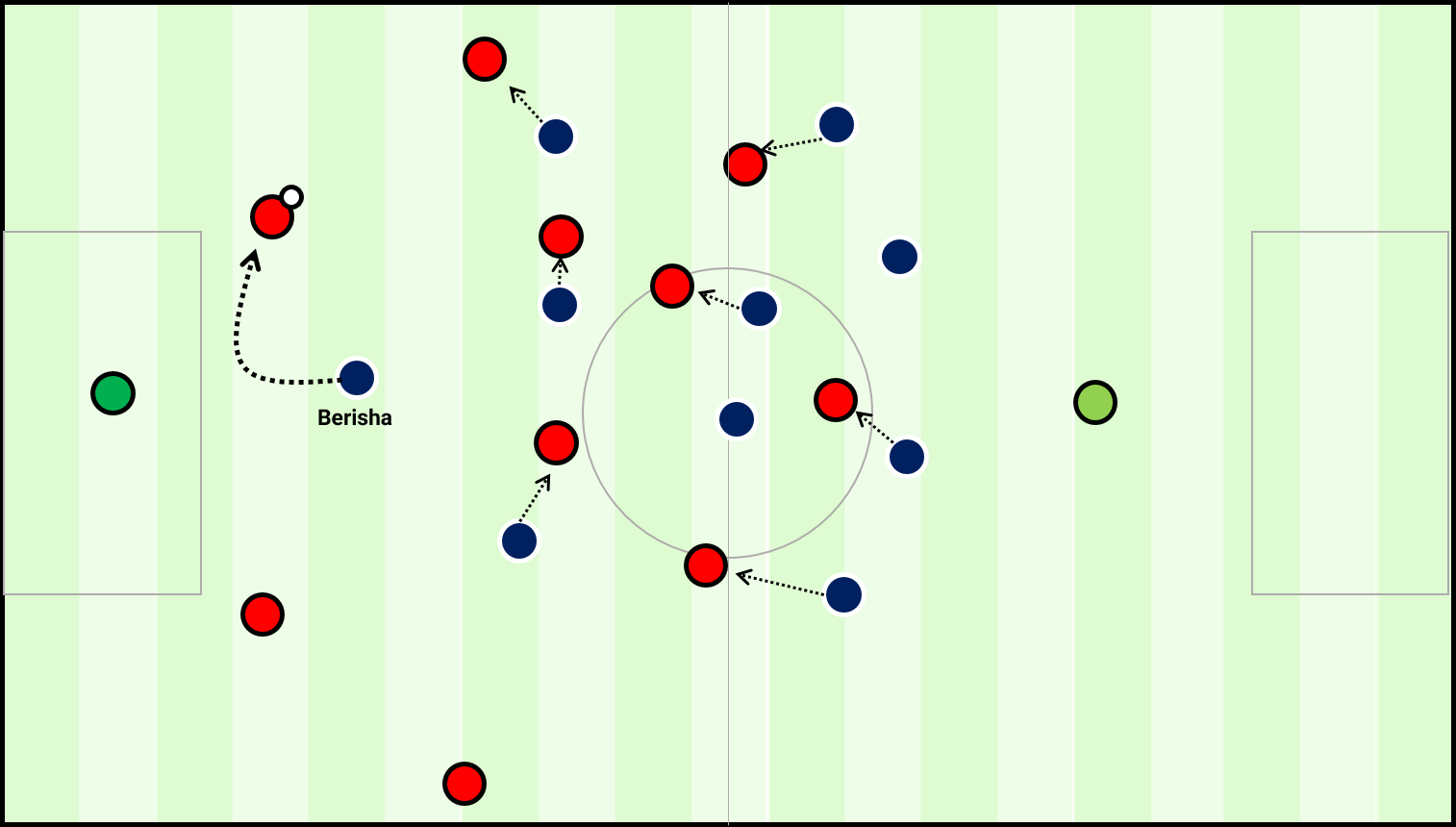Thrilling finishes, goalie heroics and a Sky Blue derby: The A-League players who were the difference in Round 24
Mathew Leckie played a pivotal part in Melbourne City claiming an 8-nil win; playing a role in several of his team's goals.

Besart Berisha is one goal away from breaking Archie Thompson’s record of 90 goals scored in the A-League.
His crowning moment could come as early as this weekend in the Melbourne derby, which would be a fitting way to immortalise the Albanian’s immense contribution to the league.
Berisha is a tremendous goalscorer: 48 at Brisbane and 41 at Victory have helped both clubs to championships. His influence extends beyond finding the back of the net though, as his work rate and energy made him a key defensive player at both clubs. Berisha’s pressing is almost as important as his goals.
At Brisbane, coach Ange Postecoglou’s remit was all about possession. In his fascinating new book, Changing the Game, the now-Socceroos coach reveals how his initial message to the Roar players was to “keep the ball until it bored the opposition to death, and then we were going to keep it some more… we were going to obsess about keeping the ball, not giving it away, not even crossing into the penalty area just for the sake of it.
“Scoring goals wasn’t even our main objective. It was keeping the ball.”
With a core of technically talented players such as Matt McKay, Erik Paartalu and Matt Smith, Brisbane embodied their manager’s ethos. Hand in hand with hoarding possession, however, is winning it back quickly when you do lose it – which is where Berisha, signed in 2011, became so important.
It is often forgotten that Berisha did not actually arrive at Brisbane until two years into the Postecoglou era, but when he did, he took the side’s ability to press and counter-press (pressing the opposition immediately upon possession turnover, to prevent counterattacks) to a new level with his insatiable work rate.

Berisha followed in the footsteps of Postecoglou after the latter moved on to the national team job, with the striker changing clubs in Kevin Muscat’s first full pre-season as coach.
Unsurprisingly, Muscat embraced Berisha’s qualities, switching away from the dual false-nine 4-2-2-2 system that Postecoglou had implemented to a more orthodox 4-2-3-1, with Berisha leading the line. While the formation changed, the key tenets of Postecoglou’s philosophy remained intact.
Victory had a clear identity: they built up from the back, played into the final third from the midfield zone, and pressed high to win the ball back quickly.
Again, this suited Berisha perfectly. He led the Victory line with aplomb, unsurprisingly adding the goals that had been missing by offering that constant threat in behind opposition defences, as well as bringing his ability to pick up balls to feet and drive towards defenders inside the penalty area.
This is only half of Berisha’s influence, however. Without the ball, he contributes enormously. When opponents start moves from the goalkeeper or centre-back, Berisha will arc his run from his central starting position to ‘split’ the pitch in half.
This effectively forces centre-backs to play forward, as the Albanian’s angle of approach prevents them from playing sideways or backwards passes. When this happens, it is a cue for the rest of the side to step forward and apply pressure to their direct opponent.
The #10 picks up the near-side central midfielder; the near-side winger picks up the full-back; the far-side winger tucks inside to prevent diagonal passes. The full-backs go tight on opposition wingers, and the midfielders push up onto their direct opponents. It is collective pressing, and creates pressure on the ball for any player that receives a rushed forward pass as a consequence of Berisha’s arced run.

High pressing has been a cornerstone of Victory’s success under Muscat. Their grand final win over Sydney FC in 2013, for example, resulted from the energy of Berisha in closing Sydney down from the front, making it incredibly difficult for Graham Arnold’s side to settle on the ball. Good pressing means you can set the tempo of the game, even if you don’t have the ball for long periods – and Berisha makes life frantic for opponents with his endless running.
Even last Saturday, in their 3-0 win over Western Sydney Wanderers, Berisha scored a hat-trick, but his defensive work was also invaluable. Particularly in the opening 20 minutes, he led Victory’s pressure high up on the pitch as Tony Popovic’s side attempted to build up attacks from deep positions.
The Victory were able to win the ball high up the pitch a number of times in the opening half-hour. Berisha pressed so hard at one point, he ended up on the touchline tackling a centre-back, even though when the passage of play had started he had been on the opposite side of the pitch. It sums up his tenacity.
Berisha deserves all the plaudits for his tremendous goal-scoring record, but his defensive work should not go unnoticed.